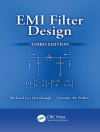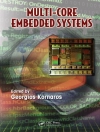An invaluable academic reference for the area of high-power converters, covering all the latest developments in the field
High-power multilevel converters are well known in industry and academia as one of the preferred choices for efficient power conversion. Over the past decade, several power converters have been developed and commercialized in the form of standard and customized products that power a wide range of industrial applications. Currently, the modular multilevel converter is a fast-growing technology and has received wide acceptance from both industry and academia. Providing adequate technical background for graduate- and undergraduate-level teaching, this book includes a comprehensive analysis of the conventional and advanced modular multilevel converters employed in motor drives, HVDC systems, and power quality improvement.
Modular Multilevel Converters: Analysis, Control, and Applications provides an overview of high-power converters, reference frame theory, classical control methods, pulse width modulation schemes, advanced model predictive control methods, modeling of ac drives, advanced drive control schemes, modeling and control of HVDC systems, active and reactive power control, power quality problems, reactive power, harmonics and unbalance compensation, modeling and control of static synchronous compensators (STATCOM) and unified power quality compensators. Furthermore, this book:
* Explores technical challenges, modeling, and control of various modular multilevel converters in a wide range of applications such as transformer and transformerless motor drives, high voltage direct current transmission systems, and power quality improvement
* Reflects the latest developments in high-power converters in medium-voltage motor drive systems
* Offers design guidance with tables, charts graphs, and MATLAB simulations
Modular Multilevel Converters: Analysis, Control, and Applications is a valuable reference book for academic researchers, practicing engineers, and other professionals in the field of high power converters. It also serves well as a textbook for graduate-level students.
Table des matières
About the Authors xiii
Preface XVii
Acknowledgments xxi
Acronyms xxiii
Symbols xxvii
About the Companion Website xli
PART I GENERAL ASPECTS OF CONVENTIONAL MMC
1 Review of High-Power Converters 3
2 Fundamentals of Modular Multilevel Converter 37
3 Classical Control of Modular Multilevel Converter 79
4 Model Predictive Control of Modular Multilevel Converter 103
PART II ADVANCED MODULAR MULTILEVEL CONVERTERS
5 Passive Cross-Connected Modular Multilevel Converters 133
6 Active Cross-Connected Modular Multilevel Converters 165
7 Star and Delta-Channel Modular Multilevel Converters 195
PART III APPLICATIONS OF MODULAR MULTILEVEL CONVERTERS
8 Modular Multilevel Converter Based Medium-Voltage Motor Drives 231
9 Role of Modular Multilevel Converters In The Power System 271
Appendix A MATLAB Demo Projects 311
References 312
Index 313
A propos de l’auteur
Sixing Du, Ph D, is a Postdoctoral Fellow in the Department of Electrical and Computer Engineering at Ryerson University in Toronto, Canada.
Apparao Dekka, Ph D, is a Postdoctoral Fellow in the Department of Electrical and Computer Engineering at Ryerson University in Toronto, Canada. He has made significant contributions to the control and application of the MMCs.
Bin Wu, Ph D, is a Professor in the Department of Electrical and Computer Engineering at Ryerson University in Toronto, Canada. He is a co-author of several Wiley-IEEE Press books.
Navid Zargari, Ph D, is a Manager & Product Architect in MV Drives R&D at Rockwell Automation,
Toronto, Canada. He is a co-author of the Wiley publication Power Conversion and Control of Wind
Energy Systems.












